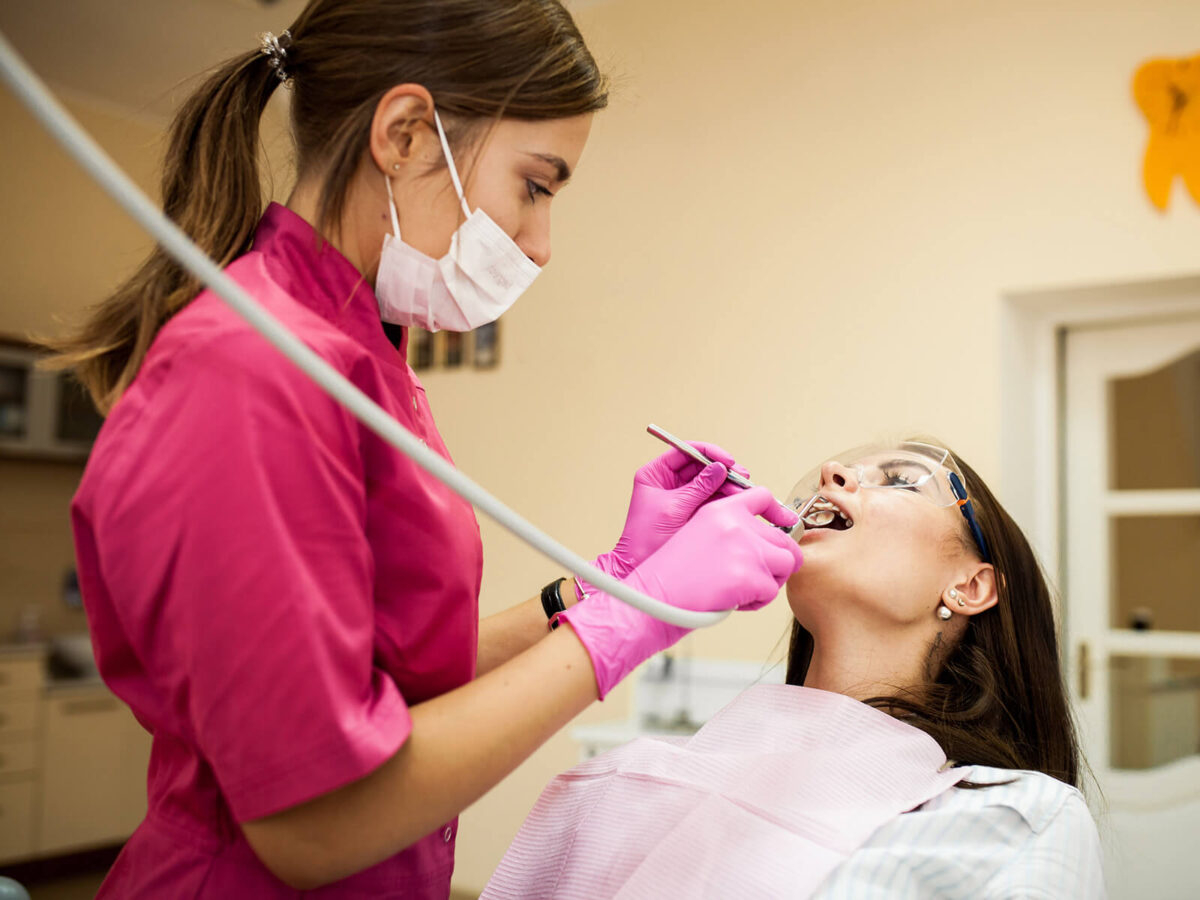Blog
Dental hygiene tips for healthy teeth & gums

What Happens When You Don’t Get Regular Dental Cleanings?
It is important to practice proper dental hygiene, and one way of doing that is having a dental cleaning check-up. Failure to attend such appointments may seem insignificant, but the impacts may have severe and enduring effects. Learning what happens when these regular dental cleanings are not done can help encourage one to make those important visits. As explained in this article, neglecting dental cleanings puts you at a high risk of plaque buildup and many other dental issues.
Why One Must Undergo a Dental Check-Up
Prevention of Plaque Buildup
Gum disease is primarily characterized by the accumulation of soft deposits of sticky bacteria called plaque on your teeth. This is because, despite regular brushing and flossing practices, there is a residue of dental film known as plaque that remains in embrasure spaces. From time to time, this forms into tartar, which cannot be removed by regular brushing but by a dentist. This layer and the risk of cavities and gum diseases are prevented through these frequent cleanings.
Detection at an Early Stage of Common Oral Complications
Dental ‘teeth cleaning’ is more than just cleaning; it involves assessment and probing as well. During these visits, your dentist can diagnose any signs of plaque buildup, tooth decay, gum disease, or even oral cancer· That is why timely diagnosis is much more favorable and can be treated without causing significant harm to the patient.
Maintenance of Overall Health
Oral health and general health are intertwined in that a person’s general health will be influenced by their oral health. Research has also indicated that poor oral health has systemic effects, including heart disease, diabetes, and respiratory infections. Oral health maintenance contributes positively to the general well-being of patients because dental check-ups help prevent various diseases of the mouth.
Effects of Neglecting to Go for Dental Care
Increased Risk of Cavities
If the old plaque is not removed, it paves the way for cavities to be formed over the surface of the teeth. The acids in plaque then cause further dissolution of the outer covering or tooth enamel, thus forming a hole or dental cavities. Dental cavities, if not treated early enough, may lead to a lot of discomfort and may need a lot of restoration procedures, such as fillings, crowns, or root canal treatments.
Gum Disease
Periodontal disease, or gum disease, is one of the worst results of failing to observe proper dental health and visiting dental cleaners. It starts with gingivitis, which causes sore and red bleeding gums· If not treated, this leads to periodontal disease, a severe form of gum disease that leads to tooth loss and deterioration of the jawbone.
Bad Breath
Halitosis, chronic bad breath, is commonly associated with poor oral hygiene habits and the formation of dental plaque· Generally when you do not clean your mouth regularly, food particles and bacteria tend to deposit in the mouth and cause bad breath. These volatile substances can only be removed effectively by professional cleanings; hence, fresh breath is observed after the cleanings.
Tooth Loss
Gum disease, if not treated in conjunction with plaque, can lead to tooth loss. As the disease progresses, this form of periodontal disease destroys the tissues that support your teeth: the gums and bones. The disease can result in teeth shifting until they can easily be pulled out or need to be pulled out.
Stained Teeth
Coffee, tea, red wine, and tobacco products are among some of the causes of tooth staining. Although daily brushing should be done to reduce these stains, professional cleaning is more efficient regarding these tartar stains. If you do not have daily brushing and weekly or biweekly dental cleanings, your teeth will turn yellow.
Consequences of Accumulation of Plaque
Heart Disease
It has been established that there is a relationship between plaque formation and heart disease. The bacteria from the plaque cause inflammation and can travel to the arteries, contributing to the formation of arterial plaque and thus causing the danger of heart attacks and strokes.
Diabetes
The relationship between oral health and diabetes is mutual, and the two are interrelated. Periodontal disease has been known to make diabetes difficult to manage because high blood sugar causes the condition to worsen. Both conditions can be better controlled by having the dental surface of the teeth cleaned on a regular schedule.
Respiratory Issues
Some bacteria present in dental plaque can be swallowed into the lungs, leading to respiratory diseases such as pneumonia and COPD. This risk can be minimized through proper brushing and flossing, oral hygiene checkups, and frequent cleaning.
Conclusion
It is evident that patients who avoid routine dental check-ups are likely to experience severe repercussions to their dental and generalized health. Dental tartar results in the development of cavities, gum diseases, breath halitosis, and tooth loss, among other complications. In this regard, the bacteria from untreated plaque can cause systematic diseases like heart diseases, diabetes, and respiratory diseases. Professional dental cleaning is part of a healthy life, and it is crucial to visit your dental professional from time to time· Why not take time to schedule your next dental cleaning today to eliminate plaque and improve your health?


